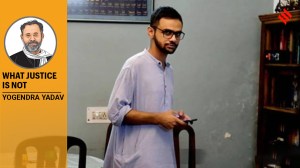Stay updated with the latest - Click here to follow us on Instagram
BMC plans to invite tenders for cloud seeding
In 2012, the city witnessed a slow start to the monsoon season, forcing the BMC to impose a 10 per cent water cut.
After writing to the Indian Institute of Tropical Meteorology (IITM), Pune, requesting technical advice to adopt cloud seeding technology, the Brihanmumbai Municipal Corporation (BMC) has now decided to invite tenders for cloud-seeding technology.
The decision, signed by additional municipal commissioner Rajeev Jalota on Tuesday, awaits a final nod from municipal commissioner Sitaram Kunte.
A fortnight ago, the corporation had written to IITM after the Indian Meteorological Department predicted a poor monsoon based on a brewing El Nino effect globally.
“The file has just been sent to the commissioner’s office for final approval to issue tenders to conduct the rain-inducing technology this monsoon,” said Jalota.
If approved, the corporation will have to foot a bill of over Rs 15 crore to carry out the procedure. A senior official from the water-supply department, however, said the administration was likely to wait for more than a month before initiating the technology.
“IITM refuses to give it to us in writing that cloud seeding won’t be necessary, hence, we are forced to issue tenders. We are quite reluctant to use the technology as it is expensive and does not have a good success rate. We hope to hold off the procedure till the rains pick up in the city, as had previously been the case in 2012,” a senior official said.
Cloud seeding is a process by which rain is induced by spraying hydroscopic particles into rain clouds to stimulate the precipitation process. Bangalore-based Agni Aviation carried out the exercise in 2009 for Rs 8 crore, but failed to yield results.
So far, the civic body has assured that lakes supplying water for Mumbai have stocks lasting till July 31. During the four
monsoon months, lakes collectively must cross the lower limit of 12 lakh million litres to provide water sufficiently for the rest of the year.
In 2012, the city witnessed a slow start to the monsoon season, forcing the BMC to impose a 10 per cent water cut. At the time, the civic body was keen to engage an Israeli firm, Merokot, for the cloud-seeding process. But the monsoon picked up by August, leaving no need to adopt the technology.
Still, as a preventive measure, municipal commissioner Sitaram Kunte said a study of monsoon patterns would be carried out annually for five years to support the corporation if the need for cloud-seeding arose.
However, this year, on account of conceptual differences on the cloud seeding methodology to be used, the administration won’t be able to rope in Merokot.
“The Israeli method of cloud seeding uses salt to induce rain from clouds, while the Indian technology uses other hydroscopic materials. We wanted to rope in the Israelis, but they said they needed to conduct a thorough study of our rain pattern for a few years after which
they will carry out the process. We were unwilling to commit to using their technology after the study, and so they declined our request to study the rain pattern in Mumbai,” the senior official said.
alison.saldanha@expressindia.com







